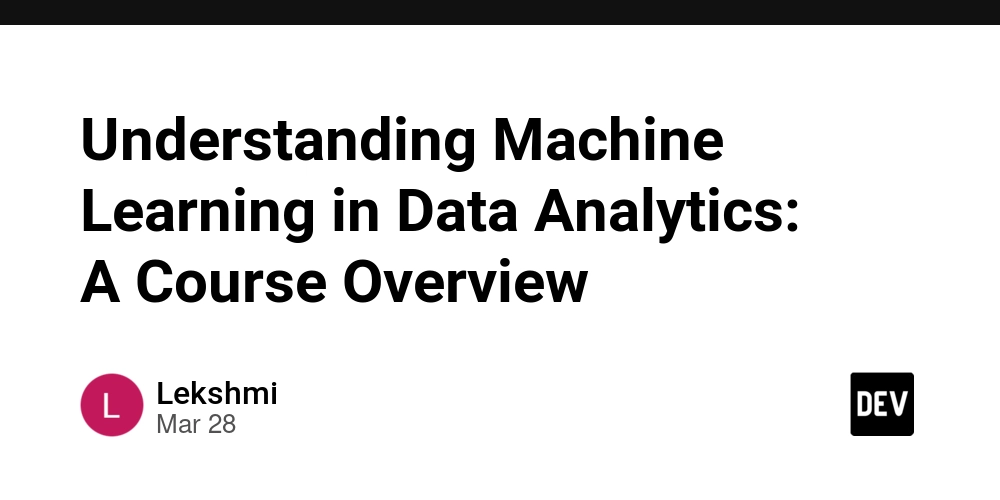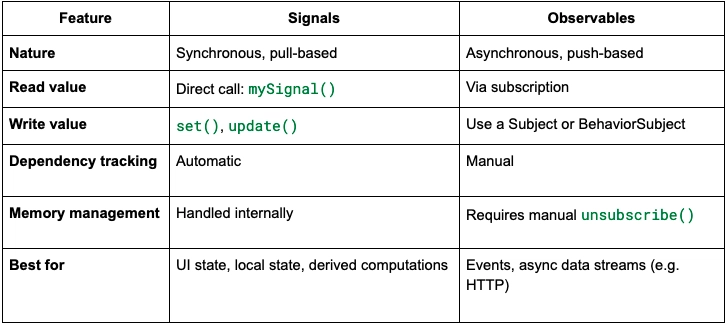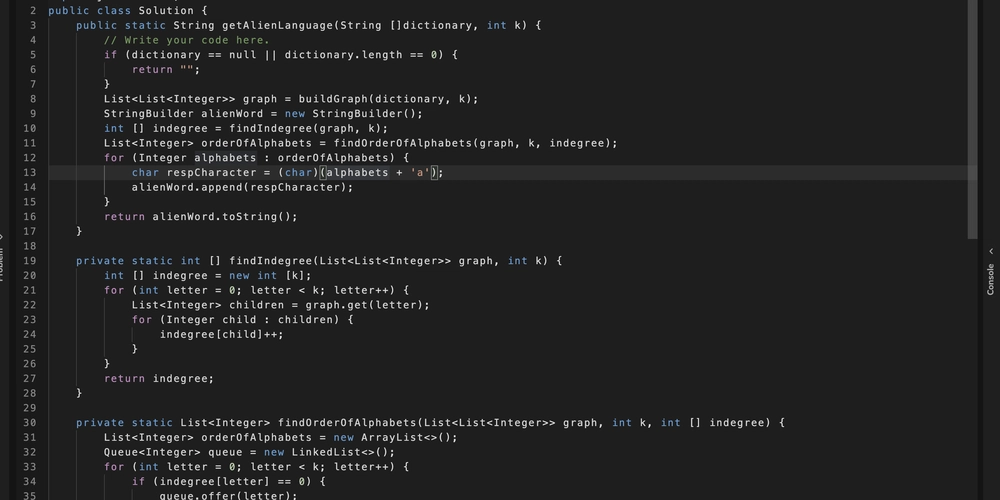Understanding Machine Learning in Data Analytics: A Course Overview
Machine learning (ML) has revolutionized the field of data analytics, allowing businesses and individuals to derive meaningful insights from vast amounts of data in ways that traditional methods simply can't match. As data continues to grow exponentially, understanding how to leverage machine learning for data analytics is becoming increasingly vital. If you're considering diving into this field, a structured course in machine learning can provide you with the foundational skills needed to succeed. In this article, we will walk you through an overview of what machine learning is, its role in data analytics, and how you can get started by enrolling in a course, particularly focusing on the best data analytics institute in Kochi to guide your learning journey. 1. What is Machine Learning? Machine learning is a branch of artificial intelligence (AI) that involves creating algorithms that can learn from and make predictions or decisions based on data. Unlike traditional software, where the programmer writes explicit rules, in machine learning, the system improves its performance automatically by finding patterns in the data. In data analytics, machine learning is used to identify trends, predict future outcomes, and optimize processes. It's applied in various sectors, including healthcare, finance, marketing, and more, to gain insights from large and complex datasets. 2. Key Concepts in Machine Learning for Data Analytics Before diving into a machine learning course, it's crucial to understand some of the fundamental concepts that will be covered in your learning journey: Supervised Learning: In supervised learning, the model is trained on labeled data, where the output is already known. The goal is to predict the output for new, unseen data based on the patterns learned from the training set. Common algorithms include linear regression, decision trees, and support vector machines (SVM). Unsupervised Learning: Unlike supervised learning, unsupervised learning deals with unlabeled data. The model tries to find hidden patterns or groupings in the data, such as clustering similar data points together. K-means clustering and hierarchical clustering are popular unsupervised learning algorithms. Reinforcement Learning: This type of learning involves teaching models to make sequences of decisions by rewarding them for correct decisions and penalizing them for wrong ones. It’s often used in areas like robotics and game playing. Model Evaluation and Optimization: Evaluating the performance of a machine learning model is critical. Techniques like cross-validation, confusion matrices, and metrics such as accuracy, precision, recall, and F1 score are essential to understand how well the model performs. 3. Role of Machine Learning in Data Analytics Machine learning plays a vital role in modern data analytics by enabling data scientists to move from descriptive analytics (what happened?) and diagnostic analytics (why did it happen?) to predictive analytics (what will happen?) and prescriptive analytics (how can we make it happen?). Some key applications of machine learning in data analytics include: Predictive Analytics: ML algorithms analyze historical data and trends to forecast future outcomes, such as predicting sales, customer churn, or stock prices. Anomaly Detection: Machine learning can automatically detect unusual patterns or outliers in data, which is valuable for fraud detection, network security, and quality control. Recommendation Systems: Machine learning is behind personalized recommendations, like those used by Netflix, Amazon, and Spotify, to suggest products or content based on user behavior. Customer Segmentation: ML algorithms can help businesses segment their customers into different groups based on purchasing behavior, demographics, or engagement levels, which enables more targeted marketing strategies. 4. The Machine Learning Course Curriculum A comprehensive machine learning course for data analytics will introduce you to the concepts mentioned above and provide hands-on experience with real-world datasets. Here is a breakdown of topics typically covered in such a course: Introduction to Machine Learning: Overview of machine learning and its applications in data analytics Key differences between supervised, unsupervised, and reinforcement learning Data Preprocessing: Handling missing data, outliers, and categorical data Feature scaling and normalization Supervised Learning Algorithms: Linear regression and logistic regression Decision trees, random forests, and support vector machines (SVM) Model evaluation techniques like accuracy, precision, recall, and F1 score Unsupervised Learning Algorithms: Clustering techniques like K-means and hierarchical clustering Dimensionality reduction techniques such as PCA (Principal Component Analysis) Advanced Topics: Neural networks and deep learning Natural language processing (NLP) Ensemble methods and b

Machine learning (ML) has revolutionized the field of data analytics, allowing businesses and individuals to derive meaningful insights from vast amounts of data in ways that traditional methods simply can't match. As data continues to grow exponentially, understanding how to leverage machine learning for data analytics is becoming increasingly vital. If you're considering diving into this field, a structured course in machine learning can provide you with the foundational skills needed to succeed.
In this article, we will walk you through an overview of what machine learning is, its role in data analytics, and how you can get started by enrolling in a course, particularly focusing on the best data analytics institute in Kochi to guide your learning journey.
1. What is Machine Learning?
Machine learning is a branch of artificial intelligence (AI) that involves creating algorithms that can learn from and make predictions or decisions based on data. Unlike traditional software, where the programmer writes explicit rules, in machine learning, the system improves its performance automatically by finding patterns in the data.
In data analytics, machine learning is used to identify trends, predict future outcomes, and optimize processes. It's applied in various sectors, including healthcare, finance, marketing, and more, to gain insights from large and complex datasets.
2. Key Concepts in Machine Learning for Data Analytics
Before diving into a machine learning course, it's crucial to understand some of the fundamental concepts that will be covered in your learning journey:
Supervised Learning: In supervised learning, the model is trained on labeled data, where the output is already known. The goal is to predict the output for new, unseen data based on the patterns learned from the training set. Common algorithms include linear regression, decision trees, and support vector machines (SVM).
Unsupervised Learning: Unlike supervised learning, unsupervised learning deals with unlabeled data. The model tries to find hidden patterns or groupings in the data, such as clustering similar data points together. K-means clustering and hierarchical clustering are popular unsupervised learning algorithms.
Reinforcement Learning: This type of learning involves teaching models to make sequences of decisions by rewarding them for correct decisions and penalizing them for wrong ones. It’s often used in areas like robotics and game playing.
Model Evaluation and Optimization: Evaluating the performance of a machine learning model is critical. Techniques like cross-validation, confusion matrices, and metrics such as accuracy, precision, recall, and F1 score are essential to understand how well the model performs.
3. Role of Machine Learning in Data Analytics
Machine learning plays a vital role in modern data analytics by enabling data scientists to move from descriptive analytics (what happened?) and diagnostic analytics (why did it happen?) to predictive analytics (what will happen?) and prescriptive analytics (how can we make it happen?).
Some key applications of machine learning in data analytics include:
Predictive Analytics: ML algorithms analyze historical data and trends to forecast future outcomes, such as predicting sales, customer churn, or stock prices.
Anomaly Detection: Machine learning can automatically detect unusual patterns or outliers in data, which is valuable for fraud detection, network security, and quality control.
Recommendation Systems: Machine learning is behind personalized recommendations, like those used by Netflix, Amazon, and Spotify, to suggest products or content based on user behavior.
Customer Segmentation: ML algorithms can help businesses segment their customers into different groups based on purchasing behavior, demographics, or engagement levels, which enables more targeted marketing strategies.
4. The Machine Learning Course Curriculum
A comprehensive machine learning course for data analytics will introduce you to the concepts mentioned above and provide hands-on experience with real-world datasets. Here is a breakdown of topics typically covered in such a course:
- Introduction to Machine Learning: Overview of machine learning and its applications in data analytics Key differences between supervised, unsupervised, and reinforcement learning Data Preprocessing: Handling missing data, outliers, and categorical data Feature scaling and normalization Supervised Learning Algorithms: Linear regression and logistic regression Decision trees, random forests, and support vector machines (SVM) Model evaluation techniques like accuracy, precision, recall, and F1 score Unsupervised Learning Algorithms: Clustering techniques like K-means and hierarchical clustering Dimensionality reduction techniques such as PCA (Principal Component Analysis) Advanced Topics: Neural networks and deep learning Natural language processing (NLP) Ensemble methods and boosting algorithms like XGBoost Practical Applications: Real-world case studies Hands-on projects with datasets
5. Why Take a Machine Learning Course in Kochi?
While online resources can offer self-paced learning, enrolling in a structured machine learning course at the best data analytics institute in Kochi will provide you with personalized guidance, mentorship, and practical experience. These institutes often offer interactive sessions, hands-on projects, and access to industry professionals who can provide valuable insights into the real-world application of machine learning in data analytics.
Courses at a reputed institute will also cover best practices, industry standards, and provide networking opportunities with peers and instructors. These connections can be essential as you progress in your career in data analytics and machine learning.
6. What to Look for in the Best Data Analytics Institute in Kochi
When choosing an institute for your machine learning course, ensure that it offers:
Comprehensive Curriculum: The course should cover essential machine learning algorithms, data preprocessing, and real-world applications.
Experienced Instructors: Look for instructors with a strong background in machine learning and experience working in the data analytics field.
Hands-on Projects: Practical experience is critical. Ensure the course includes real-world case studies and projects to apply what you’ve learned.
Placement Assistance: The best data analytics institute in Kochi will often provide placement support and help you land internships or full-time roles in data analytics and machine learning.
Conclusion
Machine learning is a powerful tool in the field of data analytics, and mastering it can significantly boost your career prospects. By enrolling in a course at the best data analytics institute in Kochi, you can gain the skills and knowledge necessary to excel in this exciting field. The course will equip you with the practical skills needed to analyze large datasets, build predictive models, and implement machine learning solutions that drive business growth.
Whether you’re a complete beginner or someone with basic knowledge of programming, a well-structured course in machine learning will guide you through the complexities of this technology and open doors to exciting career opportunities in data analytics.









































































































































































![[The AI Show Episode 142]: ChatGPT’s New Image Generator, Studio Ghibli Craze and Backlash, Gemini 2.5, OpenAI Academy, 4o Updates, Vibe Marketing & xAI Acquires X](https://www.marketingaiinstitute.com/hubfs/ep%20142%20cover.png)


























































































































![[FREE EBOOKS] The Kubernetes Bible, The Ultimate Linux Shell Scripting Guide & Four More Best Selling Titles](https://www.javacodegeeks.com/wp-content/uploads/2012/12/jcg-logo.jpg)



![From drop-out to software architect with Jason Lengstorf [Podcast #167]](https://cdn.hashnode.com/res/hashnode/image/upload/v1743796461357/f3d19cd7-e6f5-4d7c-8bfc-eb974bc8da68.png?#)







































































































.png?#)




.jpg?#)


















 (1).webp?#)













_Christophe_Coat_Alamy.jpg?#)







































































































![Rapidus in Talks With Apple as It Accelerates Toward 2nm Chip Production [Report]](https://www.iclarified.com/images/news/96937/96937/96937-640.jpg)









































































































































